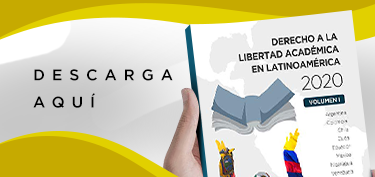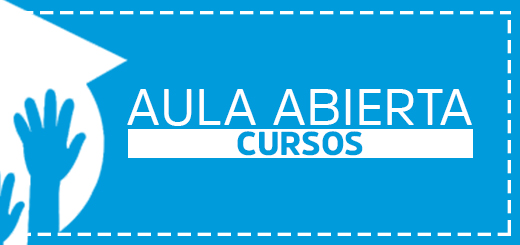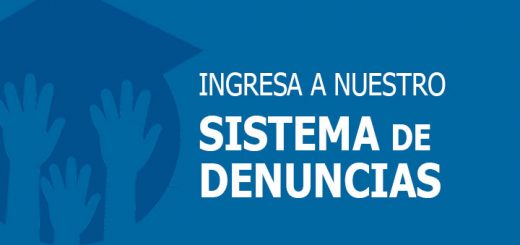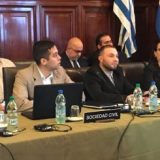Aula Abierta denounces multiple violations against academic freedom in Latin-America
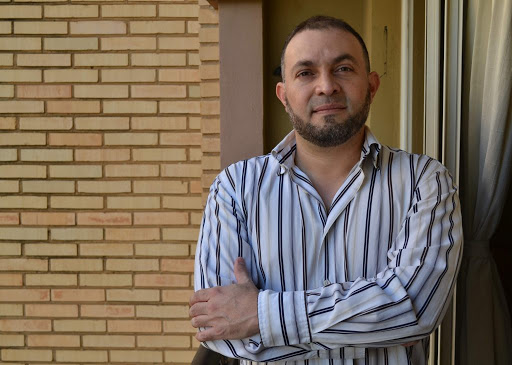
The NGO Aula Abierta (Open Classroom) denounced multiple violations, threats & restrictions against academic freedom in relation to freedom of expression & the dissemination of information in Latin-America.
An example of such, are the repeated actions against scholars who develop research and work to warn the community about the risks of the COVID – 19 pandemic and its proper treatment. In this regard, two cases stand out:
In Venezuela, during the week of May 14th, the President of the National Constituent Assembly threatened members of the Academy of Physics, Mathematics and Natural Sciences for their academic report warning about a possible increase in number of cases. He requested to activate the operation Tun-Tun (Knock – knock). Meaning that official of the revolutionary forces would knock on the doors of the academicians with the intention of supressing their research & avoid the spread of their findings. Also; in March 2020, the university professor and director of the School of Medicine of University of the State of Zulia (LUZ as its acronym in Spanish) was threatened by the governor after speaking out on the Coronavirus pandemic, and restricted him to freely speak out on this important topic and was eventually forced him to leave the country.
In the same context, in Nicaragua, also in March, Professor Miguel Orozco; Director Centre for Health Researches of -UNAN MANAGUA, stated in an interview for BBC MUNDO some concerns about the pandemic. A month after the broadcast him and three of his colleagues from the reach team were let go by University authorities.
It is important to highlight the relation between academic freedom and other human rights such as the right to health. Without the reports and opinions based on scientific knowledge, not only Venezuela and Nicaragua, but society in general will become more vulnerable to the coronavirus, due to the inaccessibility to qualified information which may contrast governmental policies on the pandemic.
More evidence of this pattern on reprisals against scholars due to their academic research has been documented by Aula Abierta’s Observatory
Such is the case of Cuba, where back August 2019, Cuban Vice-Minister of Higher Education threatened all professors who “don’t follow Party’s revolutionary policies, morality and ideology of the Cuban Revolution”. Illustrating this kind of threats is the case of professor and biologist, Ariel Urquiola in Cuba. He was dismissed and subsequently imprisoned because of his investigation into the illegal hunting of sea turtles and his participation in the defense of human rights since 2016. He also denounced having been infected with HIV during his release process.
Back to mainland, there are cases like in PhD on Economic Sciences and Venezuelan professor Santiago Guevara, who was arbitrarily detained and brought before military courts in 2017, after publishing articles on the economic situation in his country. In the trial, the prosecutor presented his books and academic papers as an evidence of his crimes.
Also, in Ecuador, a Judge of the Supreme Court and university professor at the Andean University Ramiro Avila-Santamaría was banned from hearing a constitutional case regarding mining in the province of Azuay, due to his previous scientific research papers against extractivism, which in the opinion of the Court proved an “interest” in the cause.
Scholars are not only attacked because of their scientific researches, but also for participating in the discussion of public affairs, these attacks have intensified in the Latin-American region within the recent years.
Take for instance, the legal document issued by the National Council of Universities back in 2019 in Venezuela, which requested to initiate a criminal inquiry against the rectors who are members of “Universities Rectors Association” for not recognizing the “de-facto government” of Nicolás Maduro.
This pattern has been documented also in Bolivia with threats and violence against the rector of San Andres Mayor University, Waldo Albarracin (2019) and the rector of Centro American University, José Idiaquez, in Nicaragua (2018).
Other evident pattern is the criminalization of university actors (scholars, students & university personnel alike) and their right to peacefully demonstrate.
In the early 2000’s, this was evidenced back in 2009, when former president of Venezuela, Hugo Chavez, ordered both: police and military forces to violently repress students on the streets in Venezuela whenever a demonstration was held. He ordered the State forces to “Give’em plenty of good teargas”. Unfortunately, these acts of violence are often repeated in Latin America & are carried out by State Forces (police and/or military) and in some cases “para-statal groups”.
In more recent years, between 2017 and 2020 Aula Abierta’s Observatory on Academic Freedom has documented over 450 university students arbitrary detentions during social demonstrations. In the same matter; more than 100 university students expulsions have been registered and not less than 30 students have been wounded, subjected to torture, cruel, inhuman and degrading treatment and even murdered while exercising their role as critical thinkers & their right to demonstrate in countries like: Bolivia, Colombia, Cuba, Honduras, Nicaragua and Venezuela.
The academic community has also been struck by expulsion and arbitrary dismissal as a practice of discrimination on political grounds or after advocating human rights
In this regard, Aula Abierta documented a case where 40 students from the National Agrarian University in Nicaragua were suspended and expelled for organizing a public demonstration denouncing fraud in the elections for student representatives in December 2019. Also, recent cases on reprisals against university students and professors for expressing their opinion in a public manner have been witnessed and documented in Venezuela.
Some of them, such as the case of Franklin Camargo: a medicine student who was arbitrarily expelled in 2019. This happened during a class, in which he criticized his professor, as this claimed that medicine students should swear a new “socialist oath supporting Nicolas Maduro” instead of Hippocratic Oath. Or take Virgilio Castillo’s: President of the Professorial Association at University of The Andes. Professor Castillo, who was threatened by “colectivos” (armed civilians pro-government) after denouncing labor rights violations.
Marlon Díaz can also exemplify this pattern. He is President of Student Association at University of Carabobo, who’s been attacked by the Governor, “colectivos” and also by State security forces since 2018.
Mónica Godoy’s case can also be taken as a sample of such pattern. She was fired from the University of Ibagué (Colombia) in 2017 for reporting violence against women. Fortunately, Colombian Constitutional Court ruled supporting Monica Godoy´s human rights.
Censorship also makes its way in the list of patterns documented by the observatory. It takes place when disseminating and/or discussing public matters whether these are held in university campuses or any other university context.
Take for instance the banning of the analysis of the documentary-film “Chavism: Plague of 21st Century”.
In 2019 a Criminal Court in Caracas prohibited the projection of the film in the University Simón Bolívar or any other public space for that matter.
Situations like this bring self-censorship. In 2019, at a conference on “Maracaibo’s Day”, engineering professors of the University of Zulia did not participate due to fear of retaliation, after receiving threats if they were to analyse the electrical problems in Venezuela, which is a country that has been experiencing long blackouts of around 10 hours a day or even more.
Furthermore, Aula Abierta has also documented indirect violations to academic freedom & university autonomy, such as budget restrictions, used as a way of reprisal against universities after they have produced “uncomfortable” scientific reports for governments.
The siege against universities from several authorities, having registered in Venezuela.
In the light of such events, it is fairly important to stand out that the development of critical thinking is necessary in both kinds of societies: those which are controlled by authoritarian regimes (Cuba, Nicaragua, or Venezuela) and the ones which live in democracies as well. Moreover, the scientific knowledge generated through the scientific method and critical debate in academic discussions inside or outside the university, is to always be made possible and be welcomed.

